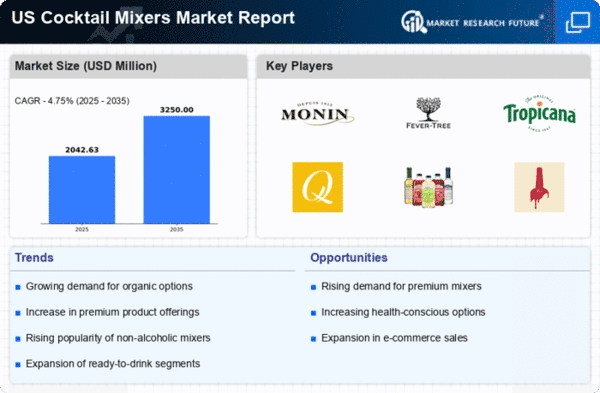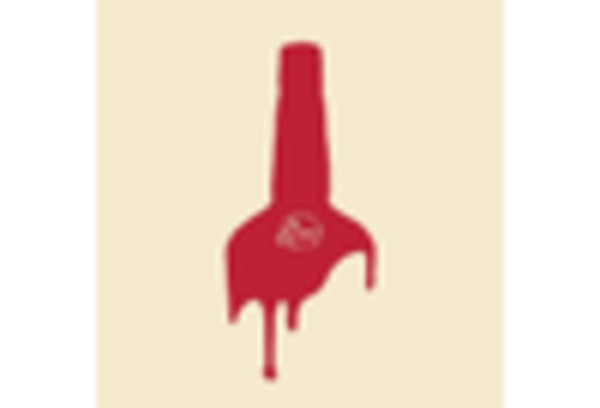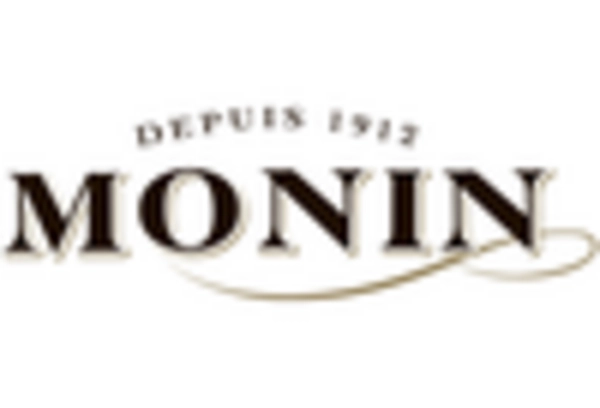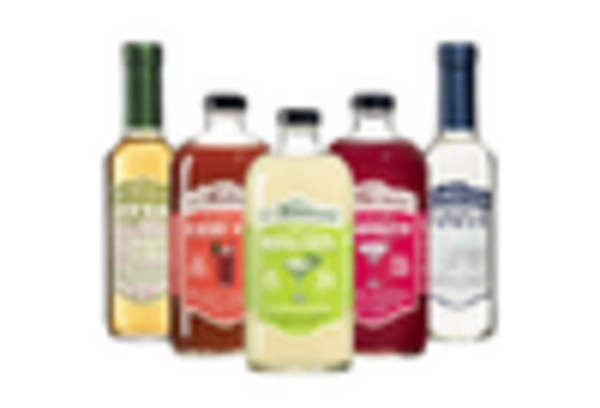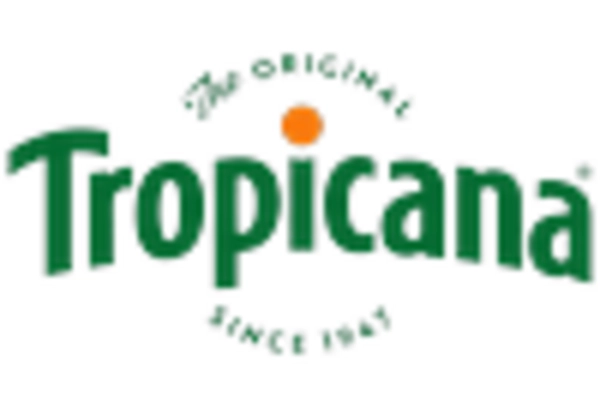Rise of Craft Cocktails
The cocktail mixers market experienced a notable surge due to the increasing popularity of craft cocktails. Consumers are increasingly seeking unique and artisanal experiences, leading to a demand for high-quality mixers that complement premium spirits. This trend is reflected in the market data, which indicates that the craft cocktail segment has grown by approximately 25% over the past year. As consumers become more adventurous in their drinking habits, they are willing to invest in premium cocktail mixers, thereby driving revenue growth in the industry. The cocktail mixers market is likely to benefit from this trend as bars and restaurants adapt their offerings to include innovative mixers that cater to the craft cocktail movement.
Expansion of E-commerce Platforms
The cocktail mixers market is significantly influenced by the expansion of e-commerce platforms, which provide consumers with convenient access to a wide variety of mixers. Online sales channels have seen a remarkable increase, with data suggesting that e-commerce sales in the beverage sector have risen by 30% in the last year. This shift allows consumers to explore and purchase niche and premium mixers that may not be available in local stores. As a result, the cocktail mixers market is likely to see a broader customer base, including younger demographics who prefer online shopping. The convenience of home delivery and the ability to compare products easily contribute to the growth of this segment.
Increased Focus on Sustainability
The cocktail mixers market is witnessing a growing emphasis on sustainability, as consumers become more environmentally conscious. Brands that prioritize eco-friendly packaging and sourcing of ingredients are likely to attract a loyal customer base. Recent data indicates that approximately 40% of consumers are willing to pay a premium for sustainable products. This trend is prompting manufacturers to innovate and develop mixers that align with sustainable practices, thereby enhancing their market appeal. The cocktail mixers market could see a shift towards organic and locally sourced ingredients, reflecting a broader movement towards responsible consumption. This focus on sustainability may also influence marketing strategies within the industry.
Emergence of Non-Alcoholic Options
The market is adapting to the rising demand for non-alcoholic beverages, as more consumers seek healthier lifestyle choices. The trend towards moderation and mindful drinking has led to an increase in the availability of non-alcoholic mixers that cater to this demographic. Market data suggests that the non-alcoholic beverage sector has expanded by 20% in the past year, indicating a shift in consumer preferences. This evolution presents an opportunity for the cocktail mixers market to diversify its product offerings, appealing to a broader audience. As bars and restaurants incorporate non-alcoholic options into their menus, the industry may experience a significant transformation.
Influence of Social Media Marketing
The cocktail mixers market is increasingly shaped by the influence of social media marketing, which plays a crucial role in shaping consumer preferences. Platforms such as Instagram and TikTok have become vital for brands to showcase their products and engage with consumers. Data indicates that brands utilizing social media effectively can see a sales increase of up to 15%. This trend encourages companies to invest in visually appealing content and influencer partnerships to reach a wider audience. As consumers share their cocktail creations online, the cocktail mixers market is likely to benefit from heightened visibility and brand awareness, driving sales and fostering community engagement.


